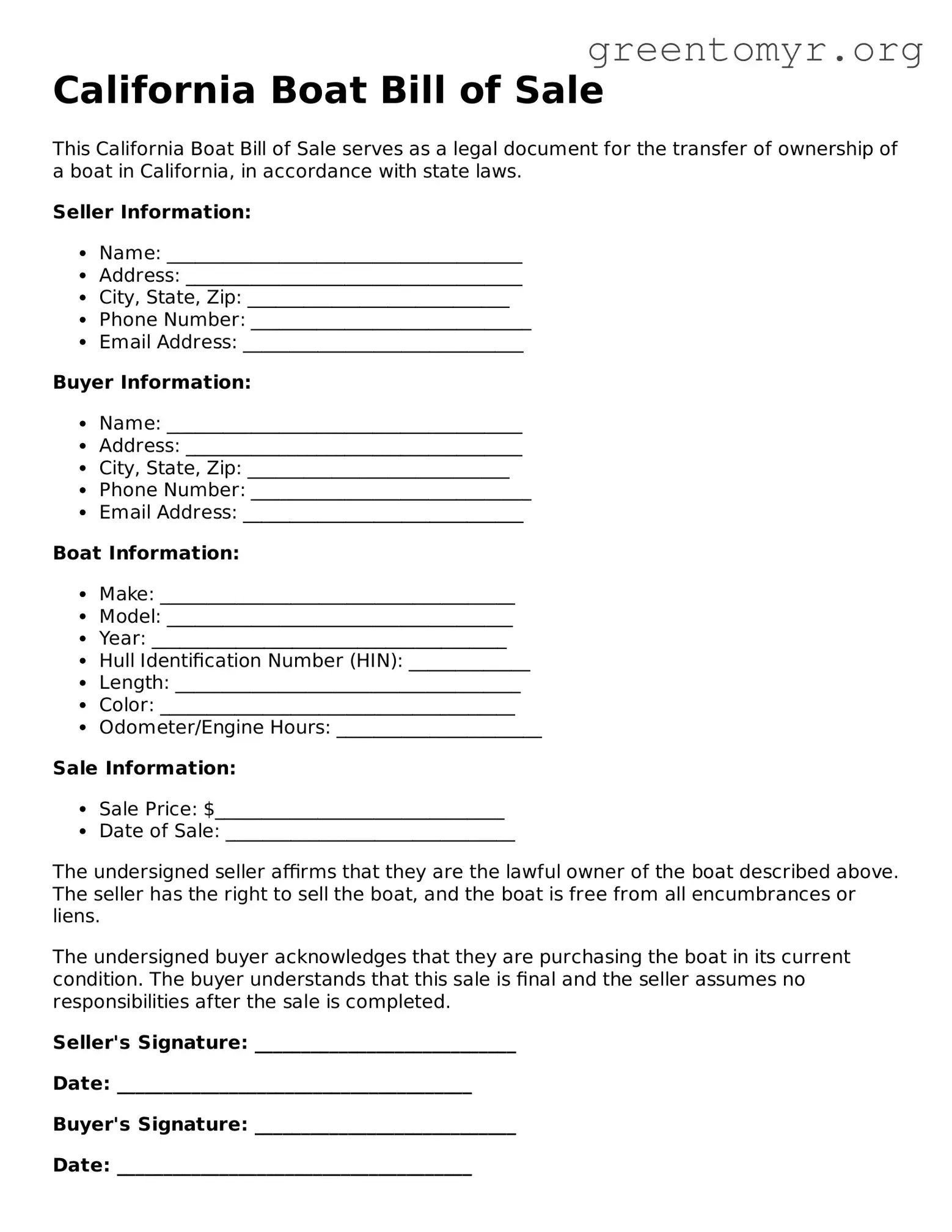Filling out the California Boat Bill of Sale form can seem straightforward, but several common mistakes can lead to complications down the line. Understanding these errors will help ensure a smooth transaction. One frequent mistake is not including all necessary details about the boat. It's crucial to provide accurate information such as the vessel's make, model, year, and hull identification number. Omitting any of these details can result in confusion or disputes regarding ownership.
Another common error is not providing complete buyer and seller information. Essential details include full names, addresses, and contact information of both parties. Incomplete or incorrect information can hinder future communication and may affect the registration process. Always double-check that every box is filled out accurately.
Many people overlook the importance of signatures on the bill of sale. Both the buyer and seller must sign the document for it to be legally binding. Failing to obtain signatures can leave both parties vulnerable if any issues arise after the sale is finalized. Additionally, the date of the transaction should be clearly stated, as this is important for ownership records.
Using the wrong version of the form can also lead to complications. There may be various iterations of the Boat Bill of Sale, and using an outdated form could result in legal problems. Always ensure you are using the most current version as per California state regulations.
People sometimes forget to make copies of the completed bill of sale. Keeping a copy for both the buyer and seller is essential. This documentation serves as proof of the transaction and can be important if disputes arise in the future. Without a copy, one party may find themselves at a disadvantage.
Another mistake is not knowing how to properly complete the payment section. If cash is being exchanged, that amount should be clearly stated. If a check is used, ensure all details regarding the check are included. Any ambiguity in payment information can lead to misunderstandings.
It's also important to remain cautious about selling an unregistered or improperly titled vessel. Before completing the sale, verify that the boat has a clear title. Issues related to ownership can arise if a boat has liens or is not legally registered, making it vital to conduct due diligence.
Buyers often make the mistake of skipping inspections. Always consider having the boat inspected for safety and mechanical issues before finalizing the sale. This can save both parties from potential headaches and can lead to a more transparent transaction.
Lastly, failing to check with local authorities regarding any additional requirements is a frequent oversight. Sometimes, additional paperwork or specific forms may be needed to complete the sale. Being proactive in this regard helps ensure that the transaction complies with all legal requirements, providing peace of mind for both parties.
